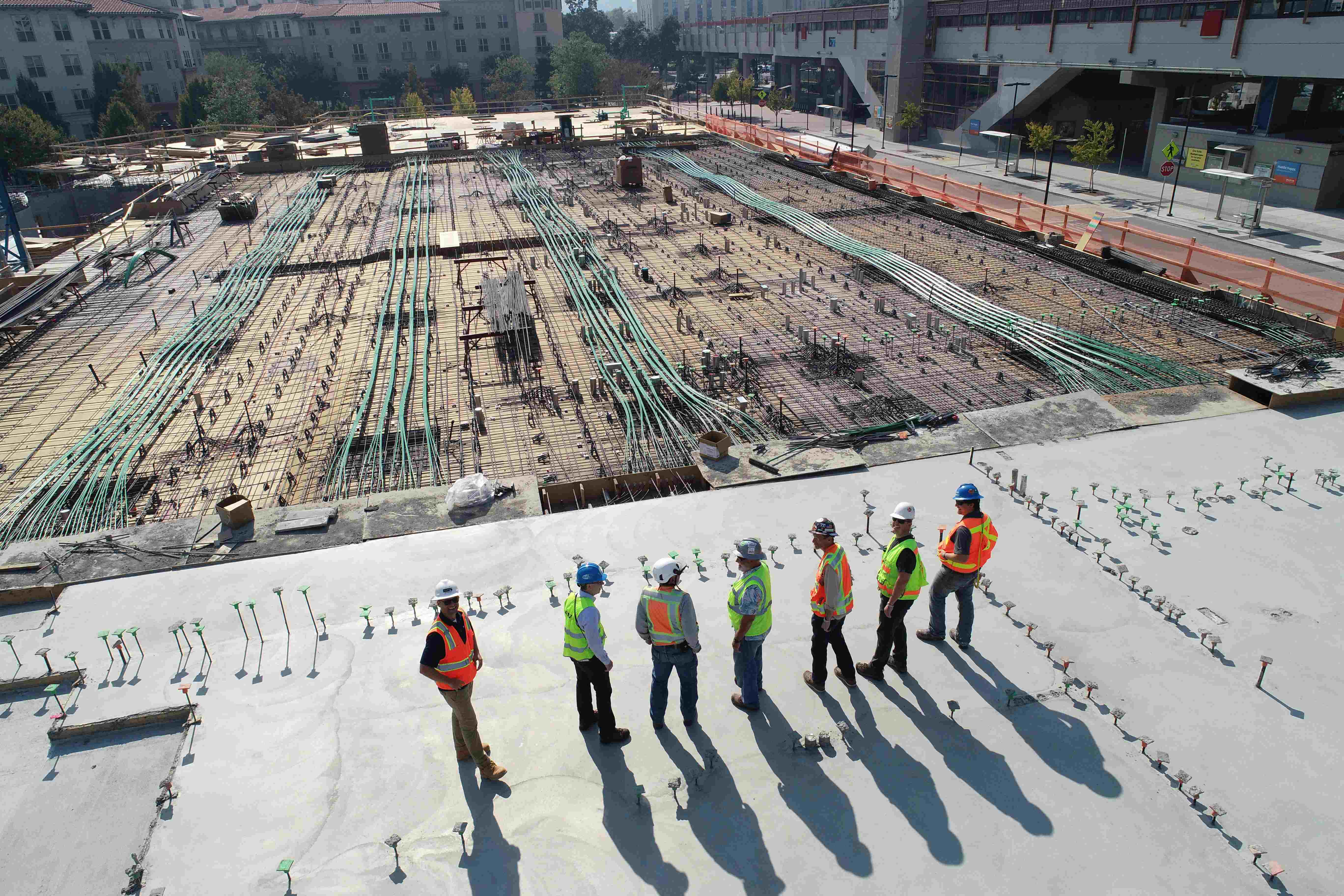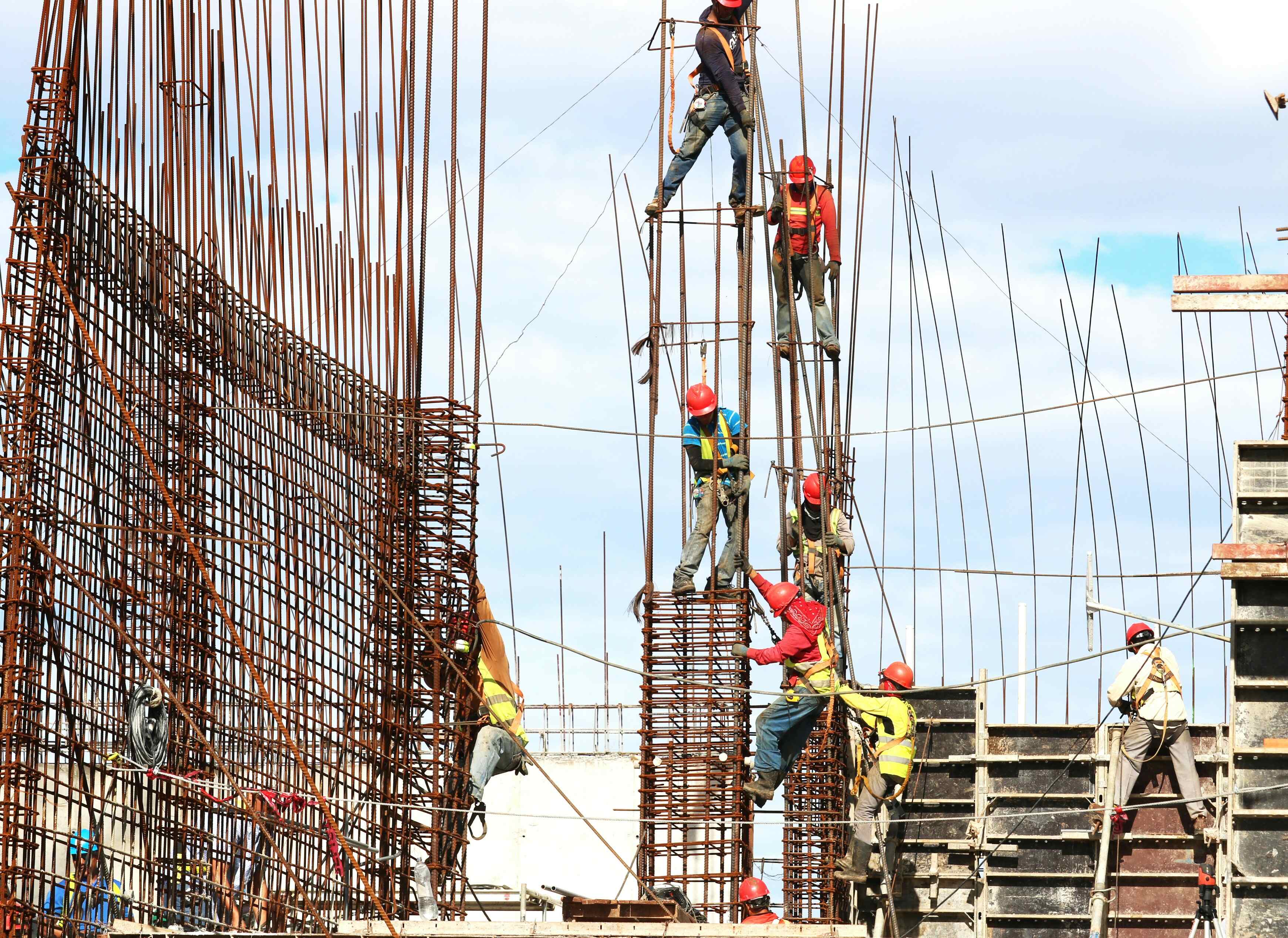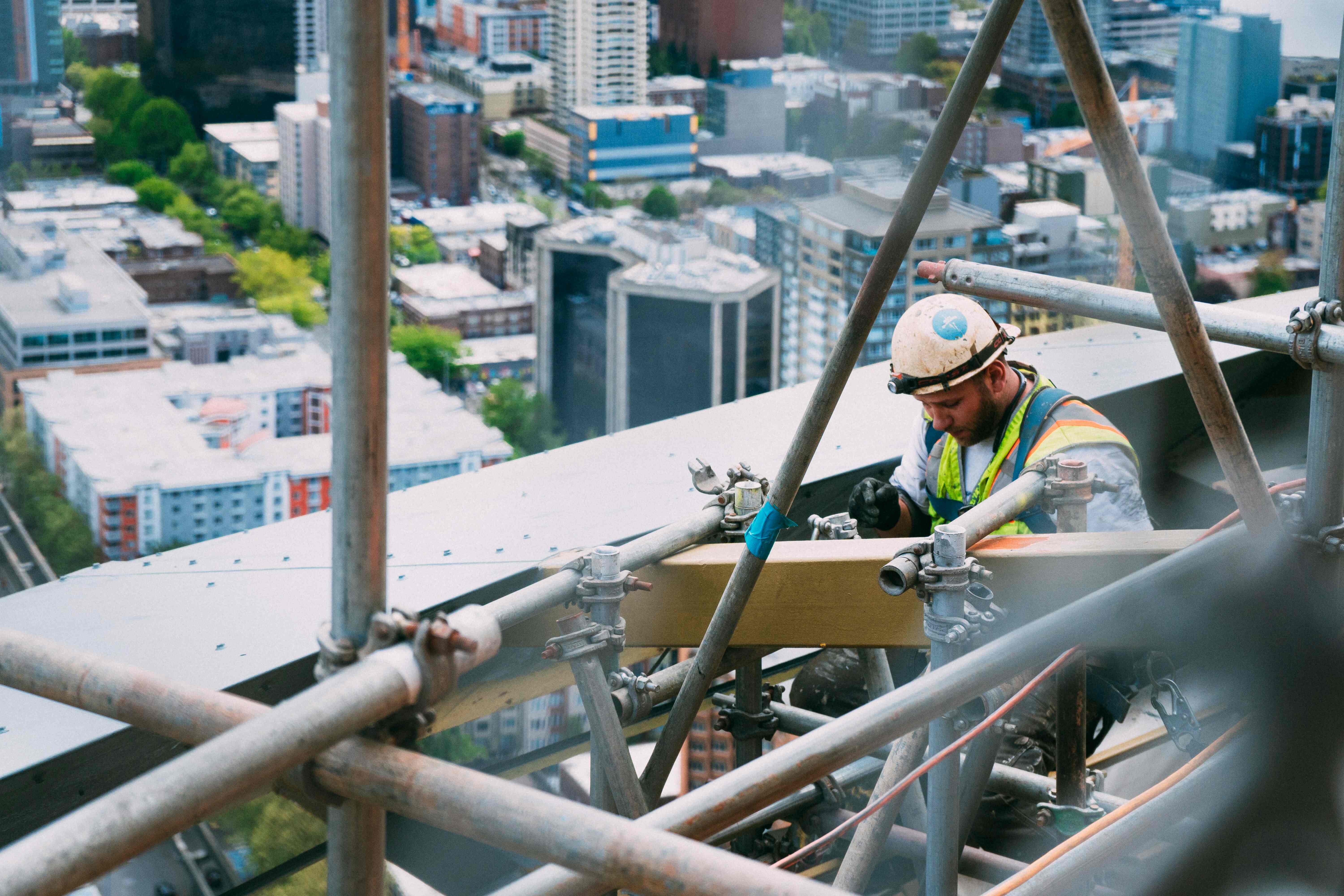Society relies on essential infrastructure, which depends on construction companies. Construction companies need a workforce. Presently, the world is experiencing a labour shortage, and the true extent of the ramifications of this is not yet known. It’s a complex issue that’s arisen for a range of reasons, but effective construction recruitment solutions can provide answers. One of these solutions is hiring foreign workers.
This guide explores the benefits and challenges of recruiting international workers and what construction companies need to consider when hiring foreign workers.
Why is There a Need for Foreign Construction Workers?
Construction companies worldwide are experiencing significant challenges due to a global labour shortage. In the United States, 88% of construction companies fail to complete projects on time, with construction worker shortages accounting for 61% of the delays. Europe has similarly disconcerting figures:
- In France, 43% of construction companies stated labour shortages as their primary reason for hampering building activity.
- It’s reported that 39.3% of German construction companies cited a shortage of skilled workers as a cause of construction jobs not being completed.
- Over the next five years, the United Kingdom will need 251,5000 construction workers to meet construction demands.
Infrastructure plays a crucial role in society, providing essential services such as homes, schools, and hospitals. To address the current labour shortage, construction companies can benefit from hiring foreign workers. This approach not only helps bridge the workforce gap but also offers additional advantages to the industry.
Why Should Construction Companies Hire Foreign Workers?
Aside from it being a means to stop the labour shortage, construction companies can expect several advantages when recruiting foreign construction workers:
- Highly Motivated: In some cases, foreign construction workers leave countries with weak economies. Moving to a country with better conditions and pay increases productivity and a willingness to work long hours.
- Cost-Effective: Some foreign construction workers are willing to accept lower wages than local workers, which can sometimes increase construction companies' profitability.
- New Skills: Different countries have different building practices. Foreign construction workers could have effective techniques to share with local workers.
- Diversity: Construction companies could benefit from employing workers from different backgrounds. As it represents a commitment to inclusivity, construction workers from overseas could be encouraged to join.
- Flexibility: Demand in the construction industry can fluctuate, and hiring foreign workers can provide access to a diverse talent pool to meet that demand. Foreign workers can often accept short-term contracts, which means construction companies remain scalable.
Ultimately, the prime object of construction companies is to complete projects to a high standard and within set deadlines. Bringing in experienced foreign workers can help achieve this, reducing the likelihood of delays and ensuring quality results.
Legal Considerations
Foreign workers can be particularly useful in construction projects. Companies are realising the benefits and seeking ways to add more to their team. However, companies must navigate a range of legalities.
Immigration Authorisation
Depending on the company's operations, they must understand the relevant visa and work permit requirements. Including identifying the appropriate visa categories for construction workers and meeting eligibility criteria such as:
- Skill level
- Education
- Work experience
- Adhering to quotas
European Union
In the European Union, the process is relatively straightforward when an EU-based construction company employs a worker from an EU country. EU citizens have the right to free movement within the EU, which means they can work in any EU country without a work permit. Although they’re not members of the EU, this process applies to Iceland, Liechtenstein, and Norway.
United Kingdom
The construction recruitment process is more stringent for countries like the United Kingdom. Here’s how:
- Points-Based Immigration Systems: Through the Skilled Worker visa, applicants need a minimum score of 70 and will be judged on job skill level, English proficiency, and a job offer from an approved sponsor.
- Sponsorship Licence: UK construction companies must obtain a Certificate of Sponsorship to give to the worker and comply with current Home Office requirements.
- Minimum Salary Thresholds: A company must meet the minimum salary threshold for a sponsored worker.
Shortage Occupation List
However, there are instances where certain construction jobs have lower salary thresholds and reduced visa fees. These types of jobs can be found on the ‘Shortage Occupation List’ and include:
- Bricklayer and Masons
- Roofers
- Carpenters and Joiners
- Plasterers
United States
Several visa categories exist in the United States and depend on specific roles and qualifications. Here’s an overview:
- H-2B Visa: This is one of the most common options in the US. It allows US construction companies to bring foreign workers to fill temporary non-agricultural jobs. There’s an annual cap on the number of these visas issued (66,000 per fiscal year). Also, companies must demonstrate that there’s a lack of U.S. workers available.
- H-1B Visa: These visas are for specialised construction roles that require at least a bachelor’s degree. They have an annual value cap of 65,000 and are awarded via lottery. The foreign worker can stay for three years, but there’s scope for this to be extended to six.
- L-1 Visa: Companies with international operations can use this visa to transfer employees from bases overseas to ones in the U.S. This visa is for managers and executives. There’s no annual cap, but workers must have worked with the company abroad for a year.
- E-3 and H-1B1 Visas: These are visas specifically for professionals from Australia (E-3), Chile, and Singapore (H-1B1). The eligibility criteria are similar to those for the H-1B.
In addition to the relevant visa, construction companies must receive labour certification from the Department of Labour. They must prove that there aren’t enough U.S. workers available and that hiring foreign workers will not alter the wages of U.S. workers.
Other considerations for U.S. companies are wage requirements and I-9 verification. Employers must pay foreign workers the prevailing wage of their occupation and location, and all workers must complete Form I-9 to confirm their identity and work authorisation.

Employment Laws
Right-to-Work
Another consideration is determining whether foreign workers have the right work. Companies must be diligent in several areas:
- Verifying identity documents.
- Maintaining an audit trail of checks.
- Implementing robust processes for compliance purposes.
Heavy penalties are imposed if companies fail to comply with the duties above. For example, UK construction companies could be fined up to £45,000 for their first offence, and repeat offenders could receive a fine of £60,000 per illegal worker.
Local Labour Laws
Naturally, companies operating within the UK must adhere to UK employment laws. However, they must also comply with the laws of the foreign worker’s home country. These could cover:
- Minimum wage requirements
- Not exceeding working hours
- Health and safety standards
- Holiday pay
Cultural Integration
Construction jobs are projected to continue growing across industrialised and industrialising countries. Substantial growth is expected in India, China, and the USA. Due to skills shortages, rapid urbanisation, and an ageing construction workforce, foreign workers are likely to drive this growth.
Given their critical role in the demand for infrastructure worldwide, construction companies must make every effort to ensure foreign workers are welcomed and prepared for a new environment.
Assimilating can be difficult, but let’s explore what companies can do to make the construction recruitment process easier:
- Provide Language Support: Companies can offer classes covering the native language to help overcome language barriers. Companies must display important safety information in multiple languages.
- Fair Pay and Working Conditions: Foreign workers should be paid at least the minimum wage, and working conditions must be desirable. Employment labour laws, including working hours, benefits, and overtime, must be followed.
- Training and Development: Investing in foreign workers not only aids integration but could also reduce the attrition rate. Health and safety training is essential, and opportunities for skills development and career progression should also be provided.
- Social Elements: Organising events encouraging team-building and collaboration can help foreign workers form relationships.
- Offer Support: Ensure financial and legal advice is readily available to foreign workers.
- Champion Inclusivity: Construction recruitment will improve if cultural training is provided for all employees. Celebrating diversity and different cultural traditions creates a harmonious atmosphere.
Providing Pre-Arrival Support
Before foreign construction workers arrive in their new country and jobs, there are best practices that construction companies can apply for an easy onboarding process:
- Assist with Immigration Authorisation: As discussed, recruiting foreign workers can be complex. Companies can help by offering support with visa applications and conducting thorough right-to-work checks.
- Providing Practical Advice: Foreign workers might bring their families. They may need support regarding housing, healthcare, school, and other local amenities. Additionally, they might need assistance setting up bank accounts.
- Clear Job Expectations: A detailed job description should be outlined. Furthermore, key details such as salary, working hours and benefits should be explained.
- Travel and Accommodation: Construction companies could help with booking flights and any other transportation. Also, providing temporary or permanent housing that’s of a high standard.
- Support Networks: Virtual meet-and-greets could be facilitated prior to arrival so that foreign workers can familiarise themselves with their new colleagues. Developing a welcome pack with important information resources would be of great use.
Final Say: Construction Recruitment for Hiring Foreign Workers
Construction companies continue to wrestle with a skills gap and a labour shortage. Because of this, construction jobs are consistently delayed or rushed, resulting in poor-quality designs. Considered a viable solution for many reasons, the demand for foreign workers is more prevalent than ever.
Foreign workers bring specialist skills and an opportunity to upskill existing workers, a commendable work ethic and likely for a lower wage than someone local. However, construction recruitment isn’t always simple. There are intricate legal issues that must be satisfied, and from an ethical perspective, practices must be implemented to assist with their smooth transition. Factoring in these intricacies, construction recruitment agencies could be a useful means of assisting with the hiring of foreign workers.
As infrastructure expands and the construction industry grows, the need for and role of foreign construction workers will also grow. It’s evident foreign workers will be prominent in construction recruitment efforts.
Do you Need Construction Recruitment Solutions?
At Kintec, our customer-centric approach has allowed us to build an effective, global network. This, in turn, has positioned our team of construction recruitment specialists to provide your business with high-quality candidates. Our energy and persistence in helping your organisation be successful are unrivalled.
Visit our dedicated construction page to learn more, or contact a team member for their expertise.




